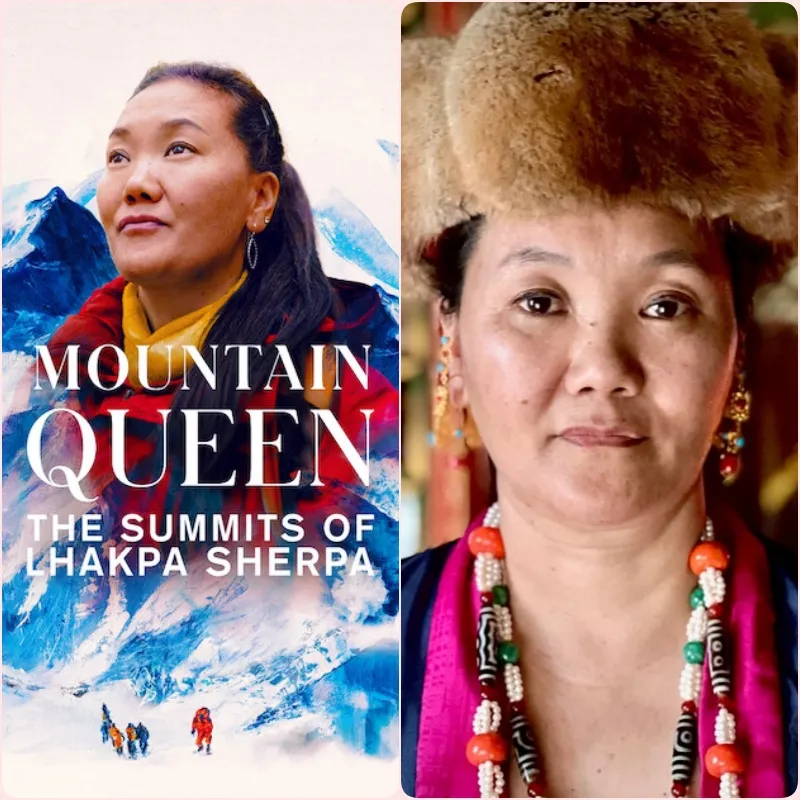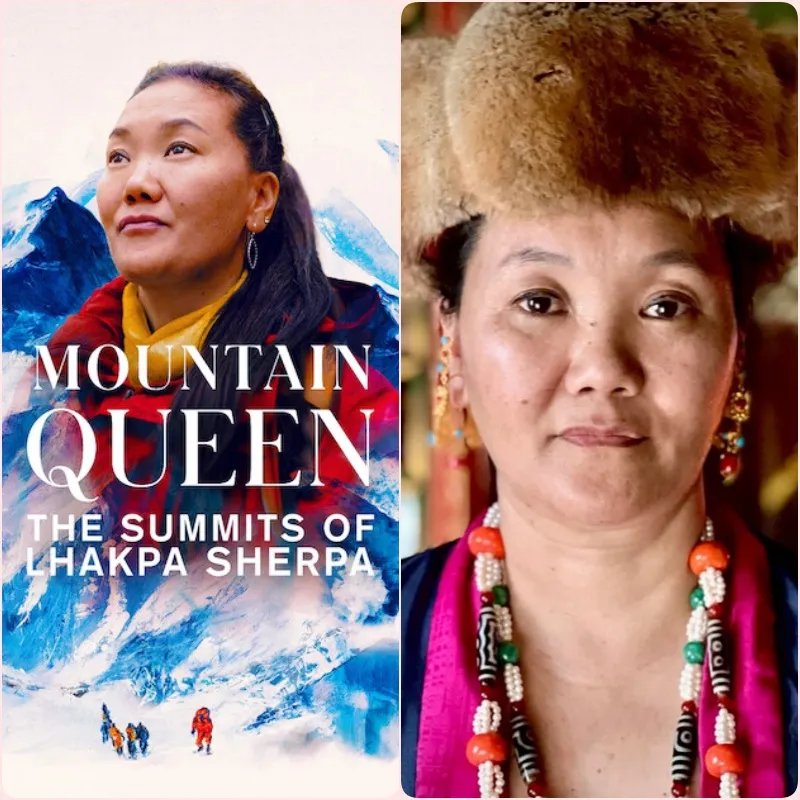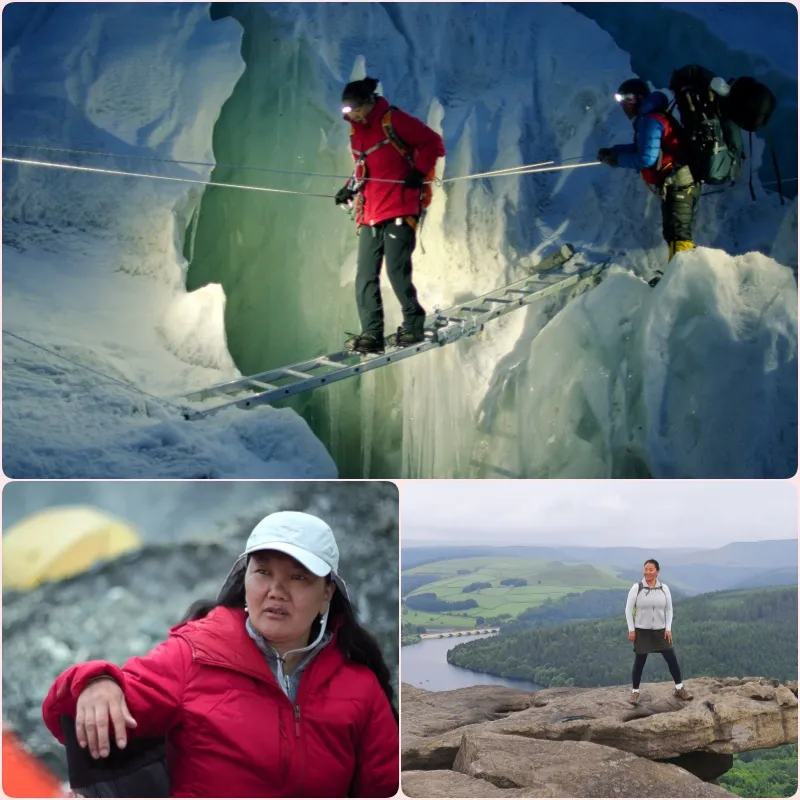
‘Mountain Queen’ – The Hidden Side of the 10-Time Everest Climber
The documentary Mountain Queen: The Summits of Lhakpa Sherpa delves into the life of Lhakpa Sherpa, a woman who has overcome the pain of domestic violence to set the record for the most Everest ascents by a female climber. At 51, Lhakpa Sherpa hails from the Sherpa community in eastern Nepal, high in the Himalayas. Before becoming the world record-holder for Everest climbs with 10 summits in 2022, she worked as a guide and porter for mountaineers. The film is directed by Lucy Walker, known for her Oscar-nominated film Waste Land (2010).

The film captures not only her record-setting achievements but also her resilience and personal struggles. While climbing Everest is a significant accomplishment for many, Lhakpa views it as just the beginning of improving her family’s life. She dreams of starting a guiding company and securing sponsorships for climbs, while also working as a dishwasher in a Connecticut supermarket.
The documentary illustrates Lhakpa’s perseverance from her childhood in Nepal, where she lacked formal education, to surpassing personal limits. Upon moving to the U.S., she faced language barriers, with her English limited to interactions with tourists.
Lhakpa has transformed her suffering into strength, showing that climbing is more than a sport—it is a journey of self-discovery and breaking boundaries. Standing atop Everest in 2022, she compared herself to a “dirty old panda” scavenging for food in Connecticut, revealing the difficulties she faced in America.
Her personal story is poignant. After her first Everest summit, she married mountaineer George Dijmărescu in 2002. However, just two years later, George began to abuse her. Michael Kodas from the Hartford Courant documented the abuse, capturing images of Lhakpa with a swollen face.
While Kodas sought to condemn George’s violence, Lhakpa wanted to erase the photos due to her shame. She referred to George as a “snowman,” a fearsome creature from her grandmother’s tales.

Despite the abuse, Lhakpa remained with George due to financial constraints. It wasn’t until 2015 that she divorced him and moved to a shelter for domestic violence victims. She gained custody of her children and continued her mountaineering career, stating, “Everest is my doctor, healing my soul.”
The film weaves interviews with climbing footage to present two parallel narratives: the psychological and technical aspects of mountaineering and the harsh environment. Lhakpa is seen wearing traditional Nepalese attire in some scenes to honor her cultural heritage. She remarks, “Look at me, I had no education. If I can do it, anyone can achieve whatever they want. Nature can change you and make you better.”
The documentary is complemented by archival footage from expeditions and interviews with a younger Lhakpa, continuously breaking her own Everest climbing records. Some segments highlight the dangers, such as crossing narrow ladders over crevasses, with persistent wind and snow.






